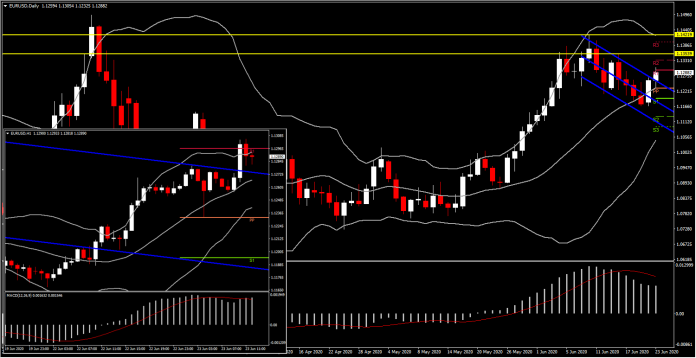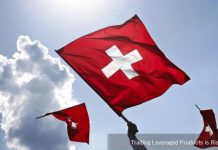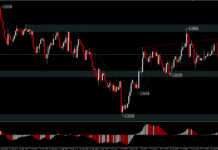The news flow today caused a brief risk-off burst in Asia-Pacific markets followed by a sharp recovery. In currencies, this transpired as a bout of dollar and yen outperformance alongside a sharp drop in risk-sensitive currencies such as the Australian dollar, followed by a quick reversal. The cause was miscommunication from the White House. Trade adviser to President Trump, Pete Navarro, said during an interview with Fox that the trade deal with China was “over .”
This saw risk assets and currencies tumbling, before Navarro quickly walked-back his remarks with the help of White House Economic adviser Kudlow, who affirmed that the trade deal is very much in place. Trump himself then tweeted: “China Trade Deal is fully intact. “
The narrow trade-weighted USDIndex (DXY) dropped to a 96.65 low on the initial remarks by Navarro, which is the lowest level seen since June 17th, before sprinting to a 97.24 high and subsequently settling near 97.00. EURUSD concurrently dropped by over 30 pips in making a low at 1.1244 before rebounding to levels around 1.1305. The pair earlier printed a six-day high at 1.1305.
Following by the overnight news, European stock markets and Euro remain broadly higher, after the stronger than expected Eurozone and UK PMI readings that helped to underpin sentiment further.
Eurozone PMIs stronger than expected in preliminary readings for June. The manufacturing PMI lifted to a 4-month high of 46.9 from 39.4 in May and the services number jumped to 47.3 from 30.5 in May. That left the composite at a 4-month high of 47.5, up from 31.9 in the previous month. Data still points to overall contraction in the Eurozone economy, but the French readings were already above the 50-point no change mark and the pace of the downturn eased markedly as economies further relaxed restrictions. Markit also reported continued strong improvement in business expectations for the year ahead. Hotels, restaurants, travel and tourism remain impacted but with borders gradually opening there at least seems to be light at the end of the tunnel, which is helping to boost sentiment even if current conditions remain subdued. Nevertheless, we agree with Markit’s comment that the outlook remains uncertain as the “new normal” will likely continue to impact the services sector in particular and it remains to be seen how many companies can survive the downturn, especially if and when government wage support is scaled back.
In other news, SNB’s Zurbruegg stated that FX intervention is potentially “unlimited”. Zurbruegg said there are no limits to how far the SNB’s balance sheet could expand. He also suggested that the bank is not concerned about the possibility of being named a currency manipulator by the US saying the central bank is in close contact with the United States to explain Switzerland’s special situation and its highly valued currency. At the same time, Zurbruegg said monetary policy can not cushion the blow of Covid-19 – stressing that “this is where fiscal policy comes in. If fiscal policy is no longer able to use its instruments, this will lead to a worse overall economic result”.
Click here to access the Economic Calendar
Andria Pichidi
Market Analyst
Disclaimer: This material is provided as a general marketing communication for information purposes only and does not constitute an independent investment research. Nothing in this communication contains, or should be considered as containing, an investment advice or an investment recommendation or a solicitation for the purpose of buying or selling of any financial instrument. All information provided is gathered from reputable sources and any information containing an indication of past performance is not a guarantee or reliable indicator of future performance. Users acknowledge that any investment in Leveraged Products is characterized by a certain degree of uncertainty and that any investment of this nature involves a high level of risk for which the users are solely responsible and liable. We assume no liability for any loss arising from any investment made based on the information provided in this communication. This communication must not be reproduced or further distributed without our prior written permission.



















